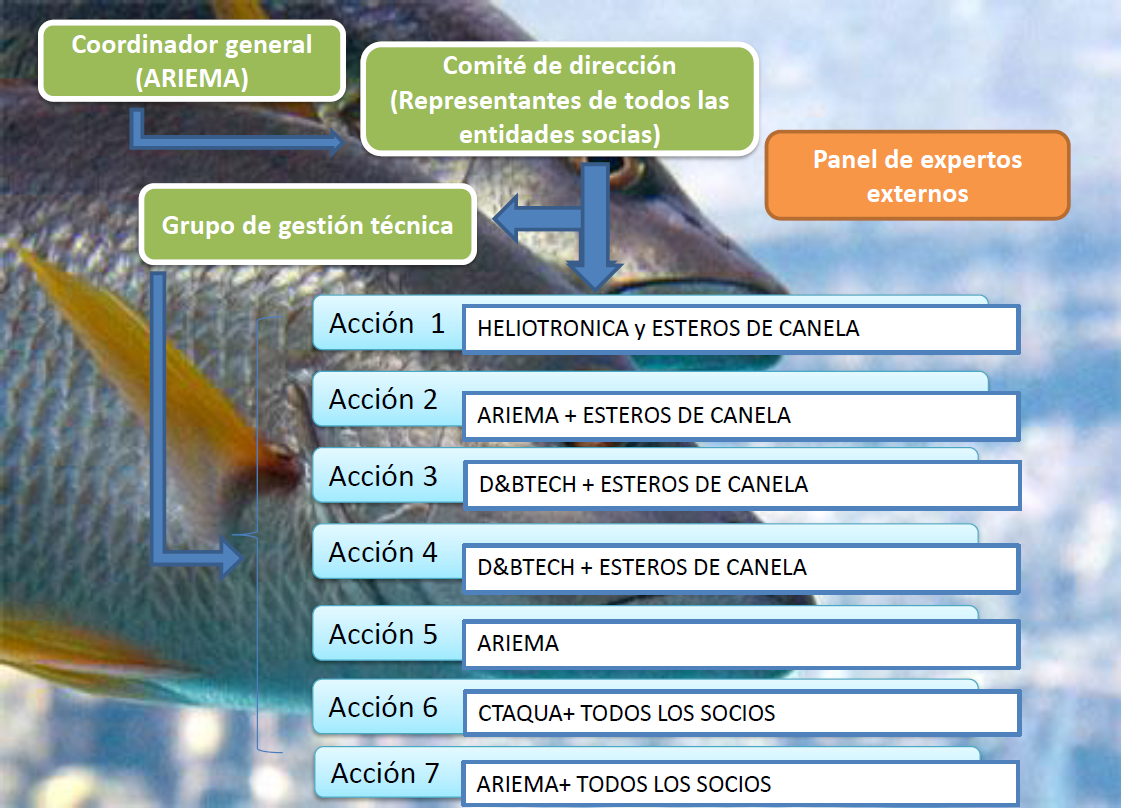ECO-EFFICIENT TECHNOLOGIES ARE ABLE TO THE SERVICE OF THE FISH IN ESTUARIES

Sustainability and energy saving are challenges faced by the aquaculture sector to ensure the economic and environmental viability of the activity. So far, the
electricity cost is one of headings has more impact on the price of the final product. For this reason, it is necessary to work on innovation in clean energy and efficient technologies that reduce the carbon footprint and improve the quality of the water.
A consortium of companies and technologically innovative institutions is working within the framework of the project LIFE-AQUASEF "Environmental improvement of aquaculture through the development of eco-efficient technologies" for the optimization of the processes of farming of fish and shellfish, the welfare of the animals, the improvement of the quality of water and CO2 reduction through the microalgae cultivation.
The project is coordinated by ARIEMA, company specialized in production of wind and solar hydrogen via electrolysis, and with a consortium formed by Heliotronica, D & B Tech,Esteros de Canela and the technology center of aquaculture in Andalucia (CTAQUA).
The mayor objective is to develop technology, energy, economic and environmental innovations related to the use of solar energy and fuel cells applied to the field of aquaculture developed on the wetlands of Andalucia.
Also, as environmental and technological innovation envisaged the use of devices of dissolution of oxygen of high efficiency and new designs of tanks of crops of phytoplankton, with the aim of generating biomass of microalgae as food supplement in the early stages of development of the fish and which in addition are an effective way to capture CO2.
The promoters of the project hope that the implementation of all the technologies in the project allows a drastic reduction of energy needs and liquid oxygen, and with it a decrease in production costs.
The AQUASEF project, which began in June this year, already has the first advances of the prototypes will be tested in the coming months in the company Esteros de Canela, dedicated to aquaculture production in streams and one of the partners of the Consortium.
Designed systems, is a "Plug & Play" Compact photovoltaic system to use insulated, as well as a group of electrolysis directly powered by renewable for the production of oxygen and hydrogen, a hydrogen combustion engine and a fuel cell, among others...
For its part, the company D & B Tech will be responsible for the implementation of teams of efficient aerators for microbubble generation in own cultivation tanks.
In order to obtain sufficient data for the calculation of real prototypes of efficiency and new profitability of processes in the aquaculture farm, systems will be tested through several cycles of production, contrasting the impact on production and the costs associated with it.
It should be recalled that AQUASEF (LIFE 13 ENV/ES/000420) falls within the call LIFE + 2013 Environment Policy and Governance, and has a budget of 1.899.318,00 euros (€919.744,00 subsidy). The project completion is scheduled for June 30, 2017.